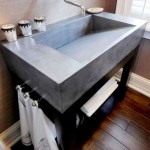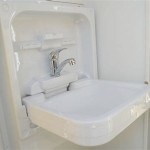Who Would Install a Bathroom Exhaust Fan?
A bathroom exhaust fan plays a crucial role in maintaining a healthy and comfortable bathroom environment. It removes excess moisture, odors, and pollutants, preventing mold growth, mildew, and other issues. While installing a bathroom exhaust fan may seem like a simple DIY project, there are several factors to consider before deciding who should handle the task. This article will explore the benefits of a bathroom exhaust fan, the pros and cons of DIY installation, and the qualifications of a professional electrician for this job.
Benefits of a Bathroom Exhaust Fan
A properly functioning bathroom exhaust fan offers numerous advantages, including:
- Moisture Control: Showers and baths release significant amounts of moisture into the air, which can condense on surfaces and lead to mold and mildew growth. An exhaust fan removes this moisture, preventing these problems and maintaining a healthy environment.
- Odor Removal: Bathroom odors can linger and become unpleasant. An exhaust fan effectively removes these odors, keeping the bathroom fresh and clean.
- Air Quality Improvement: Bathrooms are often exposed to airborne pollutants, such as hairspray, cleaning products, and dust. An exhaust fan removes these pollutants, improving air quality and reducing respiratory irritations.
- Preventing Condensation: Excessive moisture can condense on windows, mirrors, and ceilings, leading to water damage and aesthetic issues. An exhaust fan reduces condensation, protecting these surfaces and enhancing the appearance of the bathroom.
- Energy Efficiency: By removing moisture, an exhaust fan prevents the need for excessive heating and cooling, reducing energy consumption and lowering utility bills.
DIY Installation vs. Professional Electrician
Installing a bathroom exhaust fan may seem like a straightforward task, but it involves electrical wiring and potential safety risks. Consider these factors when deciding between DIY installation and professional assistance:
Pros of DIY Installation
- Cost-effective: DIY installation can save money compared to hiring a professional electrician.
- Sense of accomplishment: Completing a home improvement project oneself can be satisfying and rewarding.
- Flexibility and control: DIY installation allows homeowners to choose the desired fan model and installation method.
Cons of DIY Installation
- Safety risks: Working with electrical wiring requires knowledge and expertise to avoid electric shocks and fire hazards.
- Potential for mistakes: Improper installation can lead to faulty wiring, reduced fan efficiency, and safety concerns.
- Warranty issues: DIY installation may void the manufacturer's warranty on the fan.
- Lack of expertise: Without proper training and tools, it can be challenging to install a fan correctly and meet building codes.
Pros of Hiring a Professional Electrician
- Safety assurance: Licensed electricians are trained to handle electrical work safely and comply with building codes.
- Expert installation: Professionals possess the knowledge and skills to install the fan correctly and ensure optimal performance.
- Warranty protection: Professional installation may maintain warranty coverage on the fan.
- Peace of mind: Knowing the job is done right by a qualified electrician can alleviate worries and concerns.
Cons of Hiring a Professional Electrician
- Higher cost: Hiring an electrician is more expensive than doing the installation yourself.
- Scheduling: Scheduling an electrician may require waiting for availability, potentially delaying the project.
Qualifications of a Professional Electrician
When choosing an electrician for this job, consider these essential qualifications:
- Licensing: Ensure the electrician is licensed and insured to work in your area. This indicates they have met industry standards and possess the necessary credentials.
- Experience: Look for an electrician with experience in residential electrical work, particularly bathroom fan installations. This ensures they understand the specific requirements of the job.
- Reputation: Check online reviews and ask for references from previous clients to assess the electrician's reputation and professionalism.
- Clear communication: Choose an electrician who effectively communicates their process, estimates, and any potential challenges. This builds trust and ensures a smooth project experience.
Ultimately, the decision of who should install your bathroom exhaust fan depends on your individual circumstances, comfort level with electrical work, and budget. If you are comfortable with electrical work, have the necessary tools and knowledge, and can meet safety requirements, DIY installation might be an option. However, hiring a licensed and experienced electrician ensures a safe and efficient installation and peace of mind.

Kitchen Bathroom Exhaust Ventilating Fan Installation At Affordable

Exhaust Fan Installation Top Plumbing Services

What You Should Know Before Bathroom Exhaust Fan Installation A Brief Overview Your Local Electrician

Average Cost To Install A Bathroom Fan Forbes Home

How To Install A Bathroom Fan Diy Family Handyman

Install A New Bathroom Vent Fan Light

Who Installs Bathroom Exhaust Fans

How To Install A Bathroom Fan Step By Guide Bob Vila

Should I Install A Bathroom Exhaust Fan Renos 4 Pros Joes

Who Installs Bathroom Exhaust Fans







